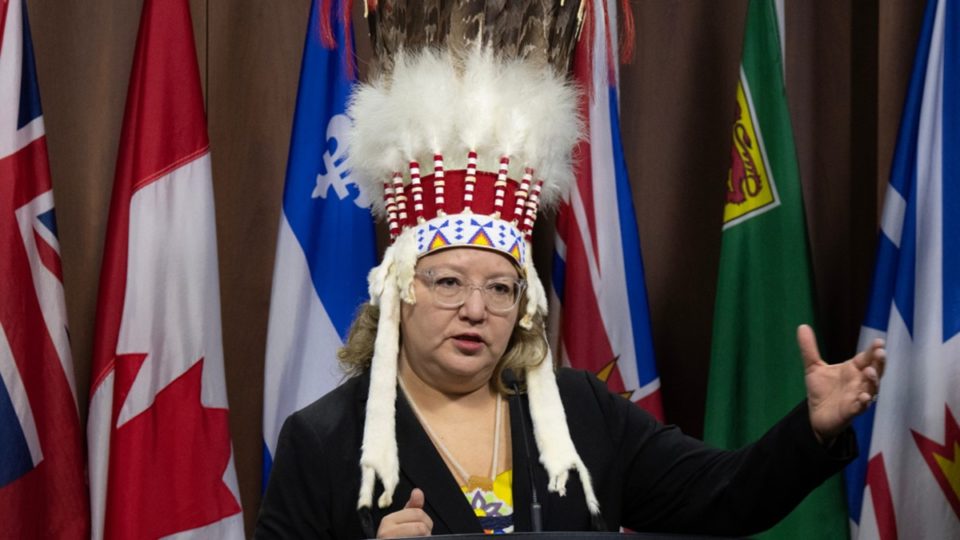Assembly of First Nations National Chief Cindy Woodhouse Nepinak found herself in a distressing situation aboard an Air Canada flight, where attempts were made to take her sacred headdress from her during travel. The incident, which occurred on a flight between Montreal and Fredericton, has ignited calls for change and greater cultural sensitivity within the airline industry.
Woodhouse Nepinak, who received the headdress from the Blackfoot Confederacy of the Piikani Nation, described the event as a “pivotal learning moment in history.” She emphasized the significance of the headdress within First Nations traditions, likening it to a cherished possession imbued with deep spiritual meaning.
The situation unfolded when flight staff insisted on stowing the headdress in the cargo hold, despite Woodhouse Nepinak’s protests. The interaction escalated, causing discomfort and embarrassment for Woodhouse Nepinak, who felt the need to hold the headdress on her lap during the flight.
The incident drew attention from fellow passengers, sparking a display of solidarity and support. However, it also underscored the need for greater awareness and respect for Indigenous customs and beliefs within Canadian society.
Air Canada has issued an apology for the regrettable incident and pledged to review its policies. Prime Minister Justin Trudeau condemned the actions of the flight crew, emphasizing the importance of learning and understanding across institutions.
Leaders within the Indigenous community, including NDP Leader Jagmeet Singh and the Assembly of Manitoba Chiefs, have echoed Woodhouse Nepinak’s call for cultural sensitivity training within the airline industry. They emphasize the importance of mutual respect and understanding of Indigenous traditions.
Woodhouse Nepinak has outlined specific requests for Air Canada, including representation of First Nations individuals on the board of directors, cross-cultural training for staff, and a protocol for interacting with First Nations passengers. She hopes that the incident will lead to positive change and greater recognition of Indigenous rights and beliefs within Canada.
Ultimately, Woodhouse Nepinak emphasizes the need for respectful dialogue and cooperation in addressing such incidents and moving forward in a more inclusive and understanding manner.
